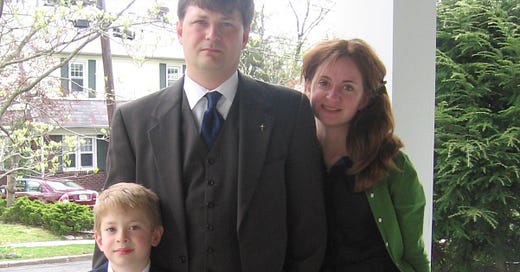For years, our kids were our biggest expense. Every penny that came into our coffers went out as an expense for them. We worked, so we could raise kids.
At first, there was daycare and nursery schools for both boys. Because Ian couldn’t talk much back then and couldn’t sit still, his daycare threatened to boot him out, so we paid them an extra $1,000 per month for an aide to help him through the day. They grew, so I shopped the sales at Children’s Place, Payless Shoes, and Old Navy. Jonah needed soccer cleats and sports goggles.
Ian needed all sorts of therapies and educational support, which weren’t covered by insurance or provided by his schools. In the past ten years, we spent $84,000 on extra help for Ian. Those expenses weren’t tax deductible. It wasn’t included on the FAFSA form when we applied for college loans for Jonah.
Parenting an autistic child in America is VERY expensive. As I wrote back in 2012,
As the reported cases of autism have soared in recent years, so have the overall costs. Some estimate that autism costs society $137 billion per year. And nobody wants to pick up that big tab. Autism falls into a black hole between medical and educational services. Insurance companies expect schools to pay, and schools want the insurance companies to pay.
While our son with autism has unique expenses, our neurotypical kid wasn’t a bargain either. His relatively affordable state college cost about $31,000 per year. We saved for years in a 529 account to pay those college bills. Before that, he had summer camps, soccer club fees, and prom tickets.
Let’s not even discuss how much food that is consumed by teenage boys. It’s horrifying.
A quick scan through our Quicken reports shows that every expenditure, from our vacation destination to car insurance, was tied to the children in some way. Even our house could be categorized as a child expenditure, since we only moved to this town for its good public schools and soccer fields. Other than an occasional date night dinner, my husband and I have never spent money on ourselves.
But those parenting expenses are slowing down, as both boys move onto their next challenges in life. With at least ten more years of work ahead of ourselves, my husband and I are now working to retire. We’re putting money aside to protect ourselves in case of illness or death, to support the autistic kid, and to travel to far-off countries. And we’re also saving enough money to keep paying the taxes on this house, because it will be big enough for grandchildren to spend the weekend.
For the first time, we have the money and the time to create new identities for ourselves. We can be something other than parents, but we don’t yet know what this new life will look like yet. It’s an unsettling and amazing at the same time to get this second chance at life.
It’s hard to not look back over the past twenty years, with a certain amount of exhaustion and regret. Parenthood should not be so difficult and so expensive. Some days, I wonder what our lives would have been like if we never had children. Would we have a great apartment in Manhattan and take trips to Fiji? And on other days, I wish we had an even bigger family — more kids! damn the expenses! — because the two children that we have are so great.
LINKS
We’re driving to Montreal tomorrow, so no writing anywhere for one week. I will probably be on twitter.
There is no one path to adulthood — the topic of my The Great Leap newsletter:
The previous week, I had talked about the importance of soft skills.
On the blog, I talked about Jonah’s first entree into the work world and the new resume format. I also blogged about bidding on a book auction, after consuming two glasses on wine.
I wrote a blog post about Jonah and Steve’s inner voice and music soundtrack brains,and how this fairly normal style of thinking actually becomes a problem with Ian’s OCD brain.
Lots of pictures of our dinner on my Instagram account.
I just finished off an article for Edutopia about the post-Covid Kindergarten class. Teachers had to deal with really unique challenges in their classrooms this year. Some teachers borrowed techniques that they picked up some special ed training to support all their students this year. I’ll post a link to the story when it comes out in mid-August.
I’m going to be doing a Podcast with the University of Wisconsin’s Center for Ethics and Education in August. Special education will be a topic. I’ll provide a link when that happens.
Impatient for workers, businesses help students take college shortcut: Employers and states are adding faster-paced skills training for people who want to forgo college.
Students will be struggling with learning lag from the pandemic for a very long time.




